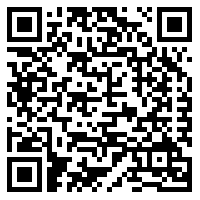Have you ever wondered why we often think back to those negative moments in our lives? Why do we tend to remember the conversations in which we were criticised rather than the ones in which we were given positive feedback? Well, there is a scientific explanation for that.
Check out: The Neurochemistry of Positive Conversations
.
Listen
.
Glossary
- accord – agreement or harmony
- conscientious – wishing to do one’s work or duty well and thoroughly
- discount – regard (a possibility or fact) as being unworthy of consideration because it lacks credibility
- ruminate – think deeply about something
- spur – promote the development of; stimulate
.
Think about it
Answer the questions below.
- What is our physical reaction when we’re faced with criticism?
- What kind of physical reaction is triggered by positive comments?
- What does the number 85 refer to in the text?
- What did one of authors learn about Rob after a weekly observation of his behaviour?
- In what way can managers improve the “chemistry” of their conversations?
.
Practice makes perfect
Fill in the blank spaces with the correct forms of the words in CAPITAL LETTERS.
Chemistry plays a big role in this ________ PHENOMENA. When we face criticism, ________ REJECT or fear, when we feel ________ MARGIN or minimized, our bodies ________ PRODUCTION higher levels of cortisol, a hormone that shuts down the thinking center of our brains and activates conflict aversion and protection ________ BEHAVE. We become more reactive and sensitive. We often perceive even greater judgment and ________ NEGATE than actually exists. And these effects can last for 26 hours or more, ________ PRINT the interaction on our memories and magnifying the impact it has on our future ________ BEHAVE. Cortisol functions like a sustained-release tablet – the more we ruminate about our fear, the longer the impact.
.
Fill in the blank spaces with the missing words. Use ONE word per blank space.
Observing Rob’s conversational patterns ________ a few weeks, I saw clearly that the negative (cortisol-producing) behaviors easily outweighed the positive (oxytocin-producing) behaviors. Instead ________ asking questions to stimulate discussion, showing concern ________ others, and painting a compelling picture of shared success, his tendency was to tell and sell his ideas, entering most discussions ________ a fixed opinion, determined to convince others he ________ right. He was not open to others’ influence; he failed ________ listen to connect.
.
Explore it more
(1586)
Podcast: Play in new window | Download





